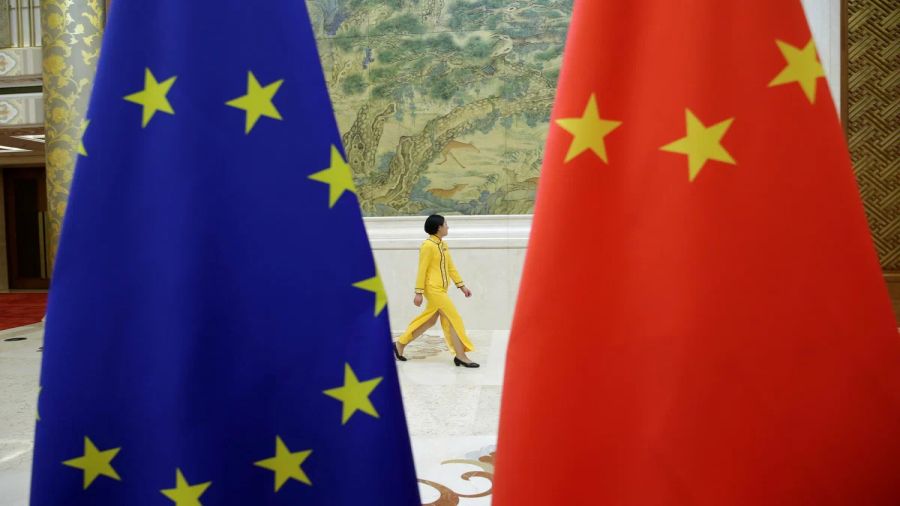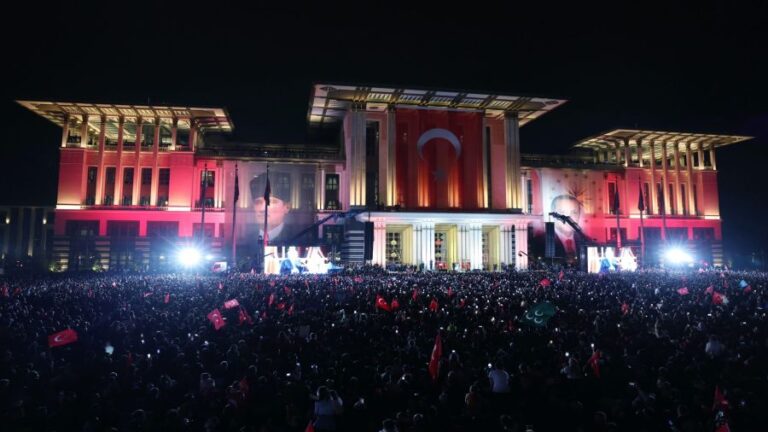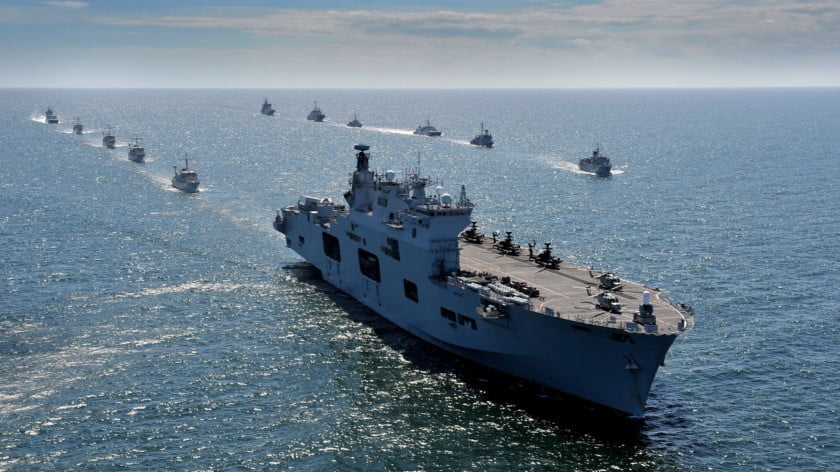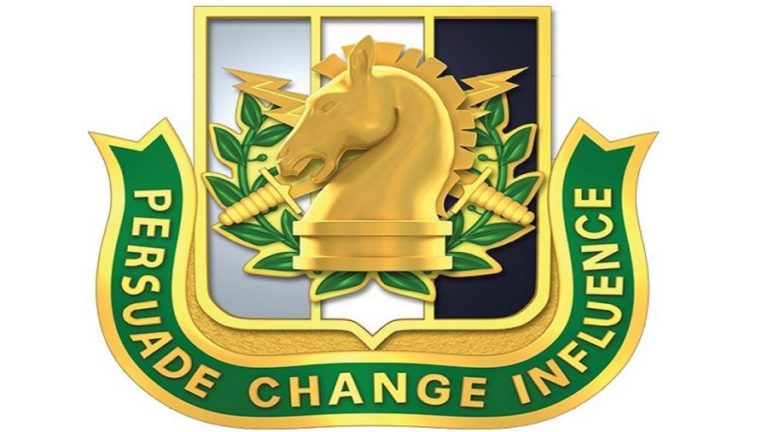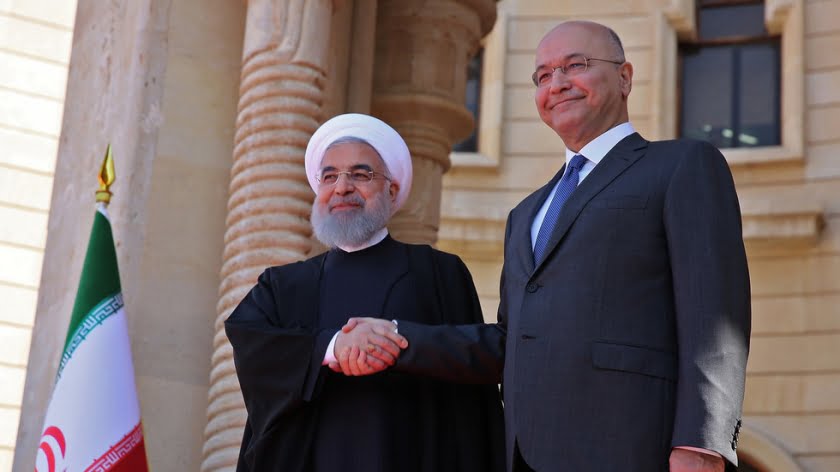The Mosaic Nature of Sino-European Relations Remains Complex
In fact, the use of the word “mosaic” in the comprehensive description of Sino-European interactions precludes an illustrative and simplistic (“explained via hand gestures”) interpretation. The phrase “remains complex” indicates that there is no current effort toward “simplification” of this statement. All of the aforementioned factors, which frequently contradict one another, remain in Europeans’ dealings with the Second World Power.
These factors were validated in a number of subsequent events, which it makes sense to quickly mention, along with the recent tour to Europe of Li Qiang, the new Chinese Prime Minister, which was previously discussed by the NEO.
First, senior EU officials continue to behave in a strange manner. Wasn’t the trip to the Philippines at the end of July a sort of “retaliatory jab” for the cold treatment meted out to European Commission President Ursula von der Leyen on her April visit to China? Especially given the complexities of Manila-Beijing relations as well as the Philippines’s clearer foreign policy lean toward China’s geopolitical competitors, namely Washington and Tokyo.
Two paragraphs stood out in Ms. von der Leyen’s five-paragraph address to Philippine President Ferdinand Marcos Jr. The third paragraph mentions the idea to extend to Southeast Asia, and specifically to the Philippines (which is supposed to be turned into a “digital hub”), a proposed undersea communications cable from Europe “to Japan via the Arctic.”
The fifth paragraph is devoted to “security cooperation.” While highlighting the dynamic nature of the geopolitical environment, in which authoritarian regimes demonstrate their determination to act through threats, the guest simply mentioned Russia as a specific example of a source of such threats.
The second “authoritarian leader” was not mentioned by name. However, it was clear who this leader was from the background, which was predicated on the premise of the Indo-Pacific region’s and Europe’s inseparability of security challenges. And everything becomes clearer when the recent mantra of “Indo-Pacific Region Freedom and Openness” is repeated, as is the EU’s adherence to the famous 2016 Award of the Arbitral Tribunal on the South China Sea. It was, incidentally, adopted in response to a request from the Philippines in 2013.
All these barely disguised outbursts did not, of course, go unnoticed by their addressee. According to a professional opinion quoted in the Chinese Global Times editorial that responded to the aforementioned claims, the president of the European Commission “makes the EU look like a US subordinate.” Based on the facts of the actions of top EU officials, notably in Europe, this evaluation no longer seems to be exaggerated.
However, even in the EU itself, there appears to be little agreement on the best strategy for foreign policy behavior. Josep Borrell, EU foreign policy chief, refutes the idea that Europeans want to “support the confrontation of camps.” During a mid-July discussion in Jakarta alongside an ASEAN event, he made this statement with Wang Yi, who returned as Chinese Foreign Minister and also held onto a higher position in the CPC Central Committee. It was also claimed that the infamous “de-risking” does not in any way target the PRC.
Josep Borrell was reportedly planning another trip to China “in the fall of this year” in order to “clarify positions” rather than “remove misunderstandings” in bilateral relations. The visit will serve as a lead-up to the upcoming PRC-EU summit, which is slated for the end of the year, if it happens at all given that it has previously been postponed. However, there are no specifics as of yet.
The current political elites of some prominent European countries exhibit a similar pattern of “divisiveness and dysfunction in minds” (and almost “torments of the soul”). This is especially obvious when it comes to selecting optimal behavior in a field of forces shaped by other key global players including the Europeans. A rough breakdown of the challenge at hand is as follows: avoid upsetting the world’s “big brother” but also try not to sever advantageous relationships with China.
It was almost certainly in the focus of the late July talks in Washington between Italian Prime Minister Giorgia Meloni and US President Joe Biden. This time he was not only awake during an important state event, but most likely he even understood what the pretty lady sitting opposite him was trying to accomplish.
According to the author, among other things, she could not help but be curious about her interlocutor’s viewpoint on the subject, which is becoming more and more relevant for Italy given the impending date (at the end of this year) of the completion of the country’s participation in the Belt and Road Initiative By the way, Italy is the only BRI member in the Group of Seven. Meanwhile, Giorgia Melonidenies that Joe Biden ever asked her to comment on this very fact.
In fact, in the extensive Joint Statement that was signed at the conclusion of the negotiations in Washington, the “China issue” was generally mentioned in a very vague manner. But in pretty reserved tones. Therefore, it is entirely the responsibility of the Italian government to decide whether to continue participating in the Belt and Road Initiative (BRI). Even though the Prime Minister’s colleagues are split on this matter, the Chinese Global Times is still holding out hope that the Italian government will respond in the “correct” way. According to the PRC, this should serve as an example for the entire EU, and also for other significant European countries.
However, it is difficult to determine how well-founded such hopes are so far. The signals emerging from Europe regarding many areas of relations with the PRC are, once again, quite contradictory.
Those that show the aim of the leading Europeans to identify their military presence in the Indo-Pacific Region are becoming increasingly evident. In this context, the NEO has already noted how the multinational military exercise Talisman Sabre, which took place on Australian territory, has grown drastically in scale. This time, units from the United Kingdom (for the second time) and France and Germany (for the first time) served as the continent’s representatives. There is hardly any rational justification for Europeans to be involved in the openly anti-Chinese weapon rattling that is occurring on the other side of the world. With increasingly obvious and serious internal problems.
But such attempt is being made, and French President Emmanuel Macron having visited several island nations in the Pacific Ocean in late July—some of which are his nation’s—started these attempts. It is the French president who is the author of the neologism “New Imperialism,” born of Paris’s failures in Africa, which was also reproduced on this trip.
Of course, the apparent target of this seemingly unexpected political attack could hardly pretend that nothing had happened. Moreover, earlier this year, Emmanuel Macron hinted at a shift toward the “big brother’s” anti-Chinese stance.
The worldwide insanity accompanying the current global process of reformatting the world order does not bypass anyone and manifests itself in a number of ways. Specifically, in the shape of the increasingly loud war drums, which astonishingly were started by people wearing pique vests. That is, the vast majority are not professional military personnel.
The exaggerations about a terrible danger from someone else are accompanied by a significant increase in military spending. Previously, the NEO discussed this topic in relation to Japan, which intends to double its military budget over the next five years. Despite the fact that the “mortal threat” is entirely internal in origin and is closely related to the issue of war hysteria.
France has now followed the same path. In mid-July, the country’s parliament passed legislation allocating more than $450 billion for military purposes over the next seven years. It is around $50 billion at the current level of yearly defense spending. This is against a backdrop of recent and obvious internal problems,
exacerbated by the exquisite milieu of mutual antagonism. It has been reported that recent PRC actions in response to long-standing US rebukes at bilateral trade will directly result in Japan’s stockpile of gallium, which is essential to modern industrial processes, lasting only for the next six months.
All western countries, Europe included, have created similar issues for themselves, not least through the infamous sanctions. Apparently, Ursula von der Leyen was also searching for rare earth metals in the Philippines. Despite the fact that they are in abundance extremely close to the Philippines, that is, in the territory where she apparently was met with “inappropriate reception.”
Indeed, some people just cannot live their lives without causing absolutely unnecessary problems.

